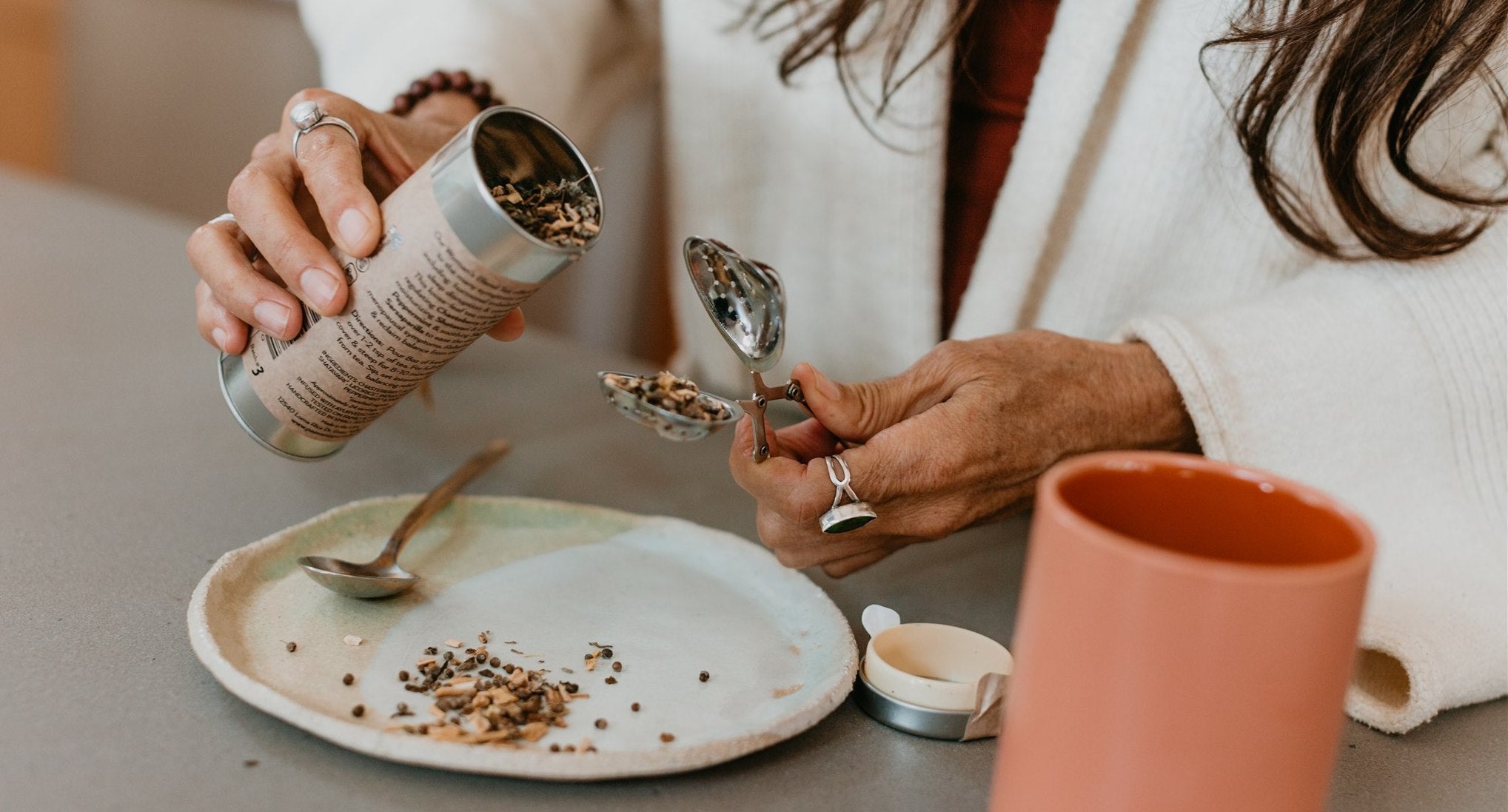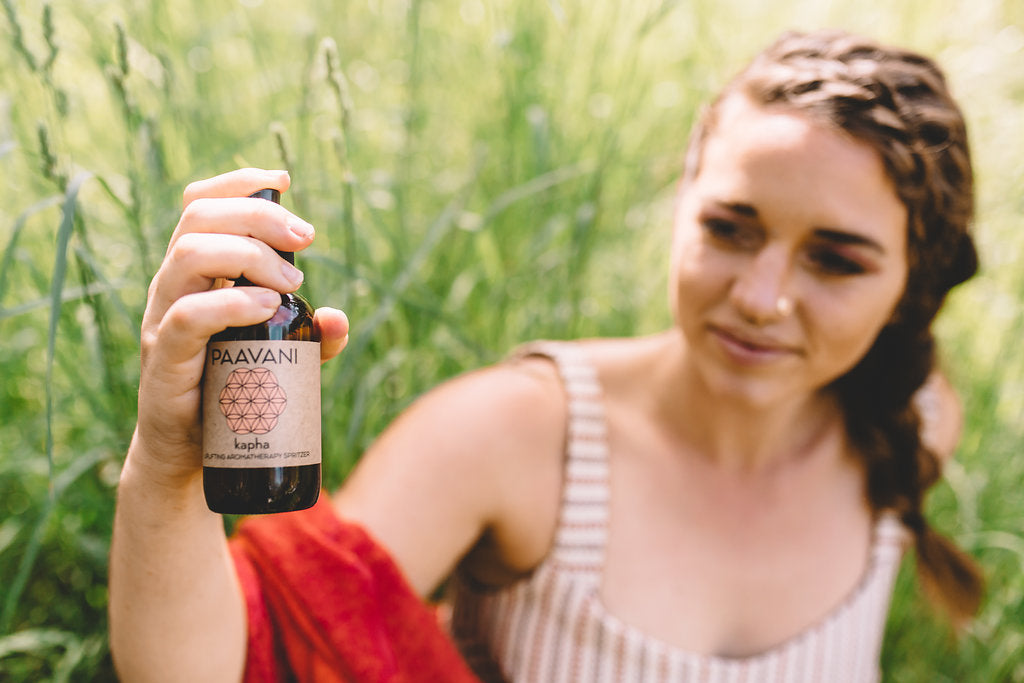
Black Cohosh: A Plant Species to Protect
Sharing the healing power of plant medicine is what inspires our vision at PAAVANI Ayurveda. By employing the use of pure, organic, sustainable and 100% earth-based ingredients to formulate our product offerings, we honor the tradition of Ayurveda and the wisdom of mother nature. We consider humans to be a part of nature and stewards of the earth with the responsibility to maintain a healthy symbiotic home that supports the vitality of all living beings- humans, animals and plants alike.
Protecting Black Cohosh & Other Plant Species at Risk
As stewards of the land, we believe it is our duty to stay informed on the current health and sustainability measures used to protect and safely utilize the herbs, trees, flowers and plants that comprise our Ayurvedic offerings. For instance, Hawaiian Sandalwood (Santalum paniculatum) is currently a species at risk, therefore we do not use this precious tree in our apothecary. Instead, we work with Australian Northern Queensland Sandalwood (Santalum lanceolatum) which is a sustainable source of exquisite sandalwood essential oil. We also deliberately utilize common culinary sage, Salvia officinalis, instead of white sage, Salvia apiana, due to the current overharvesting of white sage. Additionally, we source our palo santo essential oil from a sustainable 50-acre palo santo tree farm in Ecuador. The farm has both naturally occurring, as well as propagated palo santo trees, with the farm replanting over 5,000 palo santo trees to date. The replanting of palo santo is essential for adequate future supply.
As of late, it has come to our attention that the healing herb, black cohosh (Actaea racemosa), is currently a species at risk. Historically, black cohosh (native to North America) was used by Native American tribes like the Cherokee for a myriad of ailments such as malaria, sore throat and rheumatism. During the colonialism of North America, Europeans were introduced to black cohosh’s healing root system and began utilizing it to help ease menopausal symptoms and in more recent times, hormone replacement therapy. As you can imagine, the ever-growing popularity of this herb combined with development and deforestation in the Eastern Hardwood region of the United States has weakened, and in some instances, entirely removed groups of black cohosh, which may soon threaten the genetic diversity of this plant species. Black cohosh is even listed today as an endangered species in the states of Illinois and Massachusetts. With this information bought to our attention, we knew that we had to take part in conserving black cohosh by omitting it from our ingredients list and more specifically from our Woman’s Blend Tea.

A More Sustainable Woman’s Blend Tea
Now in our Woman’s Blend Tea, instead of black cohosh, you will find that chasteberry is the chief herb in our formulation of this medicinal tea. Also known as vitex and monk’s pepper, chasteberry is an excellent ally for all females throughout all stages of life - moon cycle, perimenopausal, menopausal and postmenopausal.
Some beneficial actions of chasteberry include:
May reduce premenstrual symptoms (PMS) like breast tenderness, constipation and headaches as well as emotional imbalances such as depression, anger and irritability.
Can ease menopausal symptoms, with studies suggesting that the regular use of chasteberry promotes a better night’s sleep among menopausal women.
Chasteberries are utilized in herbalism when a woman is experiencing infertility issues.
May also be effective in reducing inflammation.
Chasteberries have been cited to help aid in bone healing.
May protect the body from harmful bacteria and fungi like Staphylococcus and Salmonella.
To all the ladies, we hope you continue to find even greater balance from our Woman’s Blend Tea, now knowing in your heart that with each prepared cup of tea, you are responsibly caring for the planet.
How to be Responsible Stewards of the Earth
Please join us in our stewardship of the earth and always consider the sustainability of the herbs, plants, flowers, fungi and trees that you choose to use in your self-care practices. Without our mindful use and protection, these plant medicines will not continue to survive.
For more insight into herbal species at risk, we encourage you to explore the website, United Plant Savers and print out their printable “Species at Risk” PDF to keep as an easy reference guide. We also want to sincerely thank legendary herbalist, Rosemary Gladstar, for founding United Plant Savers as well as thank the organization’s board of directors and staff for their commitment to mother earth. Together, we can ensure the health and proliferation of medicinal herbs, plants and fungi for generations to come.





Leave a comment
This site is protected by hCaptcha and the hCaptcha Privacy Policy and Terms of Service apply.